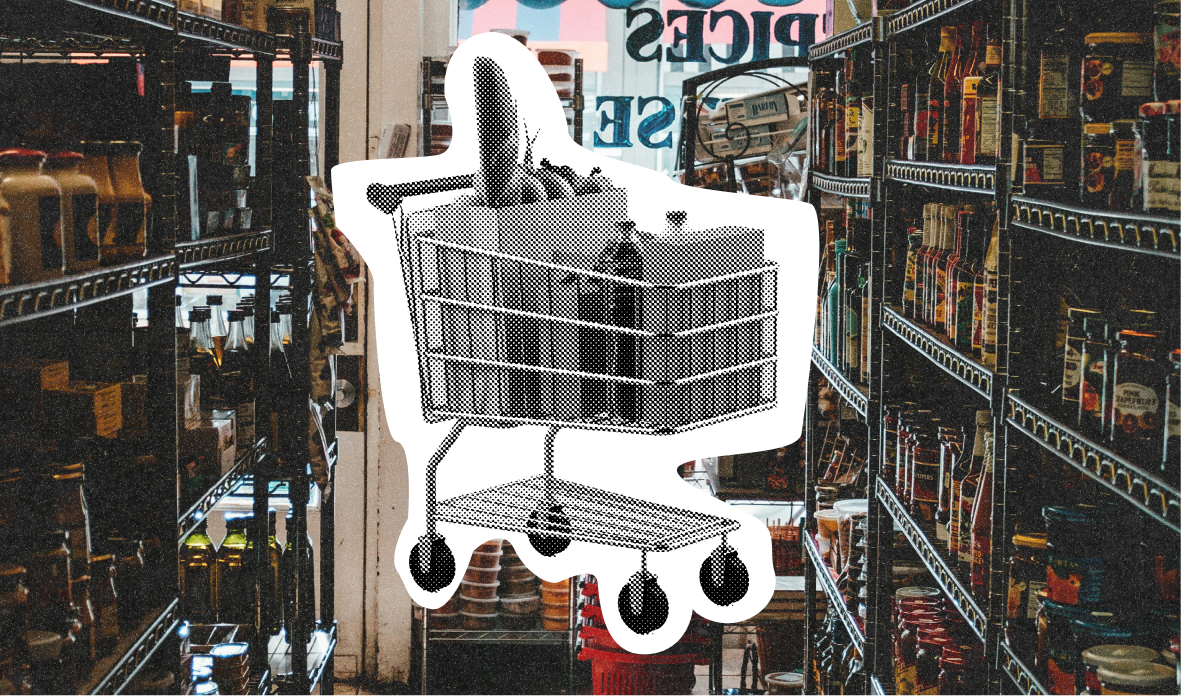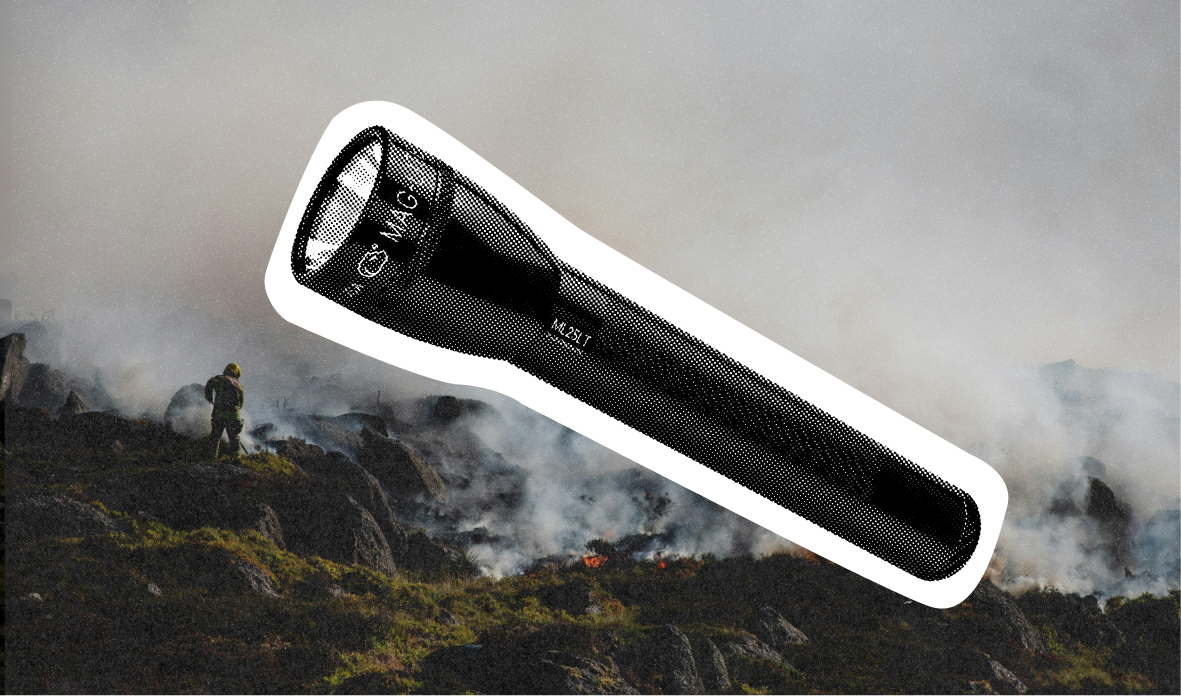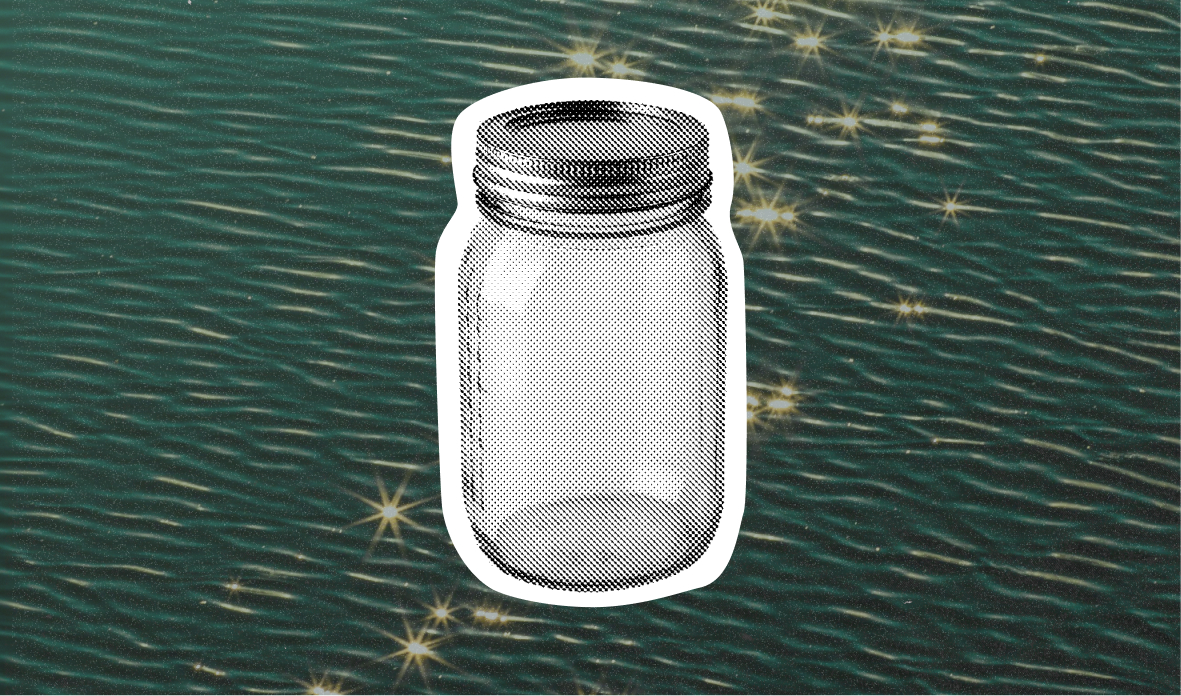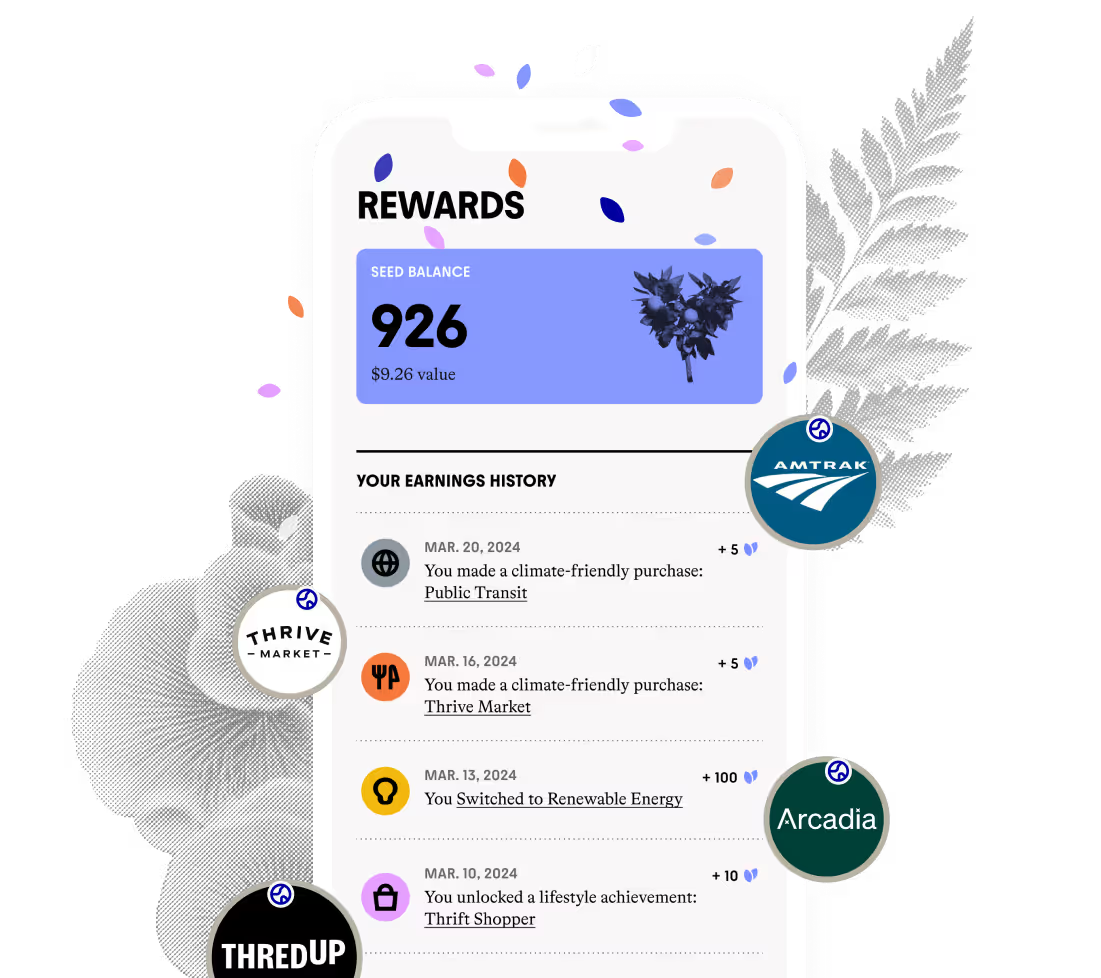Every Job Can Be a Green Job
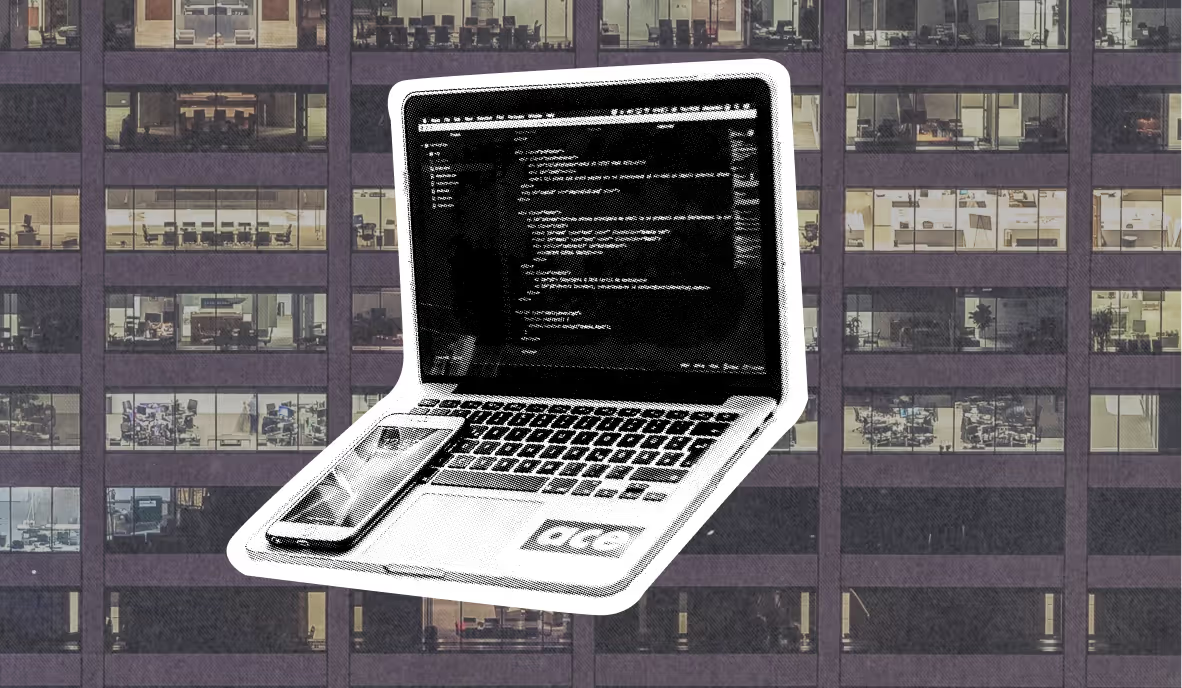
Tired of working 9-5 at a job or a company that's not focused on sustainability? We've got good news. You don't need a sustainability degree to get a climate job. There are green jobs out there for any skillset, and in this episode, we're going to help you find them.
On this episode, you'll hear:
- How listeners are adapting their job into a climate job, or starting fresh in a new industry.
- Kristy Drutman (aka browngirlgreen), the co-founder of the Green Jobs Board talk about hiring, representation, and resources in the green jobs space
- The job numbers in the climate space
- And how a green jobs are a crucial part of a more sustainable economy
Find Second Nature wherever you listen to podcasts: Spotify | Apple Podcasts
Here are some of the people you'll hear from in this episode:
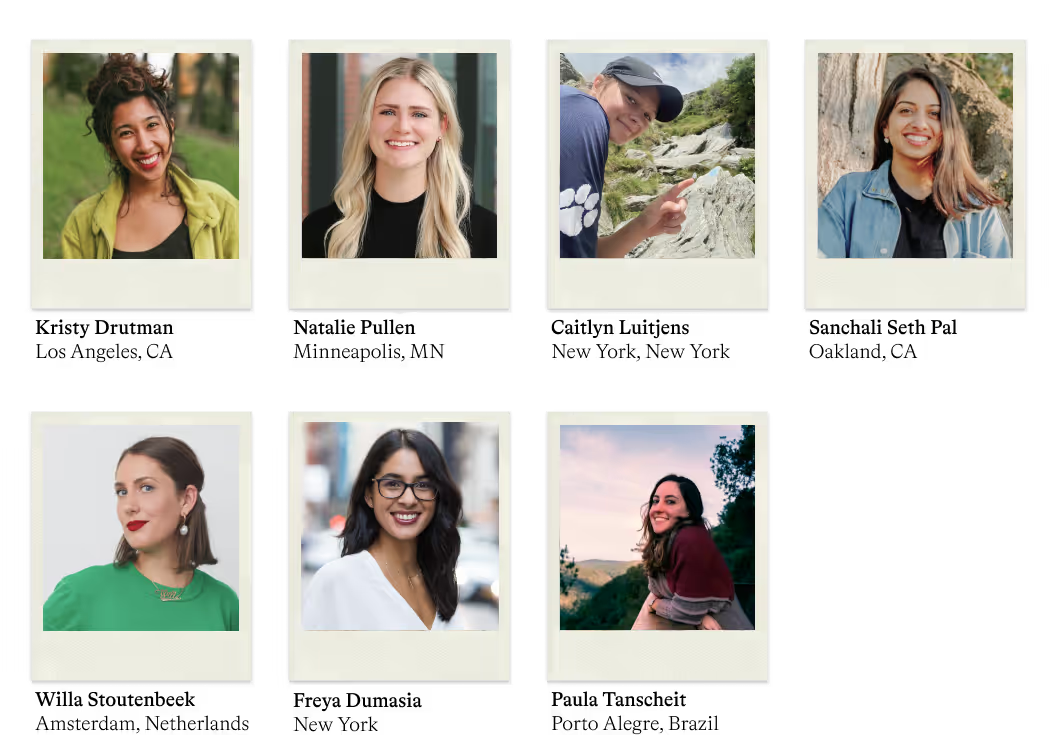
Resources and citations
Resources:
- The Green Jobs Board
- Coursera sustainability courses
- EDX sustainability courses
- Terra.do
- NASA Climate Resources
- Yale School for the Environment
- Office Sustainability: 5 Ways to be a Climate Advocate at Work
- What is The American Climate Corps?
Citations:
- Deloitte 2023 CxO Sustainability Report
- $10.3 trillion: the value of the green economy opportunity - Oxford Economics
- Executive summary – The Oil and Gas Industry in Net Zero Transitions – Analysis - IEA
- Global Oil & Gas Exploration & Production - Market Size, Industry Analysis, Trends and Forecasts (2024-2029)| IBISWorld
- The Long-Term Strategy of the United States, Pathways to Net-Zero Greenhouse Gas Emissions by 2050
- Young People Are Steering Clear of Fossil-Fuel Careers – Mother Jones
- As Oil Companies Stay Lean, Workers Move to Renewable Energy - The New York Times
- Future of jobs is green: Climate change is changing labour markets | World Economic Forum
Episode credits
- Listener contributions: Brian Stancheski, Caitlyn Luitjens, Freya Dumasia, Grace Kenworthy, Natalie Pullen, Paula Tanscheit, Willa Stoutenbeek
- Featuring: Kristy Drutman and Sanchali Seth Pal
- Editing and engineer: Evan Goodchild
- Hosting and production: Katelan Cunningham
{{cta-join2}}
Full Transcript
Hey, welcome back to Second Nature. This is a podcast from Commons where we talk to people about how they're living sustainably. In an unsustainable world, people working a 40 hour work week spend about a third of their waking hours working. And the sustainability is important to you, but you're working in a role or at a company that's not focused on facing the climate crisis. You may feel like you're stuck in a bit of a hamster wheel because in your free time, maybe you're composting or eating plant-based, maybe taking the bus. And then when you're back at work, you feel like your job or the company that you're working for is outright contributing to the climate crisis. So what's the point? What are you supposed to do?
Can you work in climate without a specific sustainability degree? Will a sustainable company even hire you if you don't have experience in climate? Or is there some way that you can make your current job a green job? I'm not gonna leave you hanging. The answers are yes, yes, and yes, I'm your host Kaitlyn Cunningham. And on this episode of Second Nature, we're gonna hear from listeners who are real life proof that any job can be a green job. I'm talking to commons founders, sun Charlie St. Paul, about what it actually means for a company to be sustainable. And I'm talking to Christie Rutman, AKA Brown girl Green. She's the co-founder of the Green Jobs Board, and I'm chatting with her about hiring representation and resources in the green jobs space. You ready?
So what does a green job look like? I did a quick Google image search, and according to this, it looks like green jobs require wearing a hard hat in a field of wind turbines. Yeah, I mean, <laugh>, that seems like a cool green job, but if you have no experience in wind turbines, you can still get a green job likely with the experience that you already have. There are several different kinds of green jobs out there. You can do your current job at a more sustainable company, or you could get supplementary education to enter a sustainability specific career. You can even make your current role at your current company more green. We'll dig more into this later, but do green jobs actually matter?
Deloitte did a survey in 2022 of over 2000 business leaders across the world. More than half of them said that their environmental employee activism has led to their company taking more sustainable actions. Throughout this episode, you'll hear several mentions of the same phrase, ripple effect. The power of a green job is that it's a way to expand and amplify your impact through a company that serves hundreds, thousands, or even millions of people. So besides wearing a hard hat in a field of wind turbines, what other kinds of green jobs are people doing? We heard from listeners who are just starting their climate career, folks who are transitioning into the space, and people who have had a great job for years.
My Version of a Climate Job: Listener montage
Natalie (03:04):
Hi, my name is Natalie Pullen. I am 30 years old and I live in Minneapolis, Minnesota. I'm a commercial interior designer. I work mostly on arts and community projects like museums and performing arts centers and the design and construction industry. My industry is responsible for nearly 40% of global carbon emissions each year. Part of that really big piece of the pie is due to the sheer quantity of work. In fact, by 2050, more than 2 trillion square feet of new construction and renovation will take place worldwide, and that is the equivalent of building all five boroughs of New York City every 35 days from now until 2050. For a long time as an interior designer, it was pretty easy to ignore that and to think it wasn't our problem. It was for the mechanical and electrical engineers to figure out to make a building more energy efficient and more airtight to lower a building's operational carbon emissions.
But now our industry knows better because we're starting to have better data about the embodied carbon that's associated with building a building. And body carbon is all the emissions associated with raw material extraction, shipping that raw material to a manufacturing location where it's further developed to shipping the final product to a project site where it gets installed. And a huge part of an interior designer's job is to specify materials. And now we're also having to do a lot of research into what a material is truly made of. Even things you might not think of, like car tile, have really massive global warming potential associated with them. When you become a certified interior designer, you make a pledge to protect the health, safety, and welfare for those we design for. And I truly believe that that needs to extend to the health and safety of the planet.
So many days at my job can feel like I'm really banging my head against a brick wall or fighting this uphill battle with people who don't want to shift away from how we've been doing things as an industry for decades. But I know that just as an average American consumer, I have intense buying power. I can tell the market where I want it to go through what I buy, and more importantly, what I do not buy. And as a designer, that buying power is tenfold just because of the sheer size of the projects I get to work on. So every small decision I make on a project has ripple effects.
Willa (05:36):
My name is Willa Stout Make. I live in Amsterdam, the Netherlands. And I'm a mother, I'm a business owner. I was a former fashion addict, uh, worked in fashion for a long time and then switched over to the the good side. I started my own company in 2010, which is called W Green. And my original motivation was to clean up the fashion industry from the inside out. And it was something that I felt very strongly about because when I had worked in fashion for over 10 years and actually growing up with both of my parents also working in the fashion industry, I never realized the dark side that was going on behind, you know, the production facilities and production methods. But that's what got me into this. And what keeps me going nowadays is really trying to unravel the systems that we're in. And for a long time, the climate movement are also the sustainable industries. They've been so white dominated, so male dominated, there's no way we're gonna be able to tackle all these issues if we don't include everyone.
Freya (06:42):
Hi there. My name is Freya Dumasia. I am 29 years old and I currently live in New York City. I was born in Dubai. I grew up in New Zealand. I've worked in Milan and moved to New York City to build my career in advertising. I'm currently a senior planner at BBDO, which is one of the best creative agencies in the world. I'm also the founder of Climate Circles, the first group in New York to provide a space, a strategist working in advertising who are really heated by the climate crisis and wanna connect, vent and ideate. It's such a great outlet for collaboration among advertising strategists over brunch to really foster industry-wide sustainability efforts.
Caitlin (07:29):
When you say, what do you wanna be when you grow up? I was used to answer superhero, but I never really stopped saying that. Hi, I'm Caitlyn Lucin. I'm a graduate student at Columbia University studying sustainability management. As I've learned in my program, there's this fine line between optimism and pessimism in the climate crisis. Yes, there's so, so, so many different issues that we all have to try to tackle it once in the next decade or even less as the clock is ticking, will I be able to make enough of a difference in my future profession? The one that I'm about to embark on very shortly, hopefully within the renewable energy sector, or something similar. But because I have the optimist superhero attitude, I think I always answer that question with I believe I can. And knowing that the peers that I surround myself with have that same attitude and are eager to make as big of a difference as possible within this climate crisis, that motivates me as well.
Interview with Kristy Drutman, co-founder of Green Jobs Board
Kristy (09:10): Hi.
Katelan (09:10): Thank you so much for joining us. I wanted to talk to you a little bit about your Green Jobs board, and I wanted to start by asking why did you start the Green Jobs Board?
Kristy (09:21): I started Green Jobs Board because I was someone who was a college student at one point in time in the past couple years. Mm-Hmm. Who was really passionate about environmental issues and taking action. But I had no idea how I was going to get a job or build a career in this space long term. Mm-Hmm <affirmative>. As much as I was deeply passionate about climate advocacy and climate education and being able to make an impact that way, I also had to think about, you know, not falling into sette, paying my bills, being able to help out my family. And those are all real struggles that so many people face. Yeah. And so for me, as someone who comes from a climate storytelling and climate media background, I realized that I could use my platform to make it way more accessible and easier for people to find jobs, resources, and opportunities on how to build a career in this space.
Kristy (10:11): Mm. So Green Jobs Board essentially started off as a series of social media posts on Instagram where I was curating resources that I just thought would be useful for people, especially young people, to know what kind of jobs and opportunities are out in the world related to climate and social impact, impact. And you know, the response was massive. Yeah. And from there I realized that there was a huge opportunity to do storytelling and to create, you know, pathways and uh, avenues of information sharing. And then we decided to make it its own company and its own platform on itself, living off of social media where companies and organizations are now actively recruiting and hiring and connecting with diverse talent. So it's been an incredible journey as someone who sees the barriers to entry and gaps of accessibility in the green economy to actually create an intervention that's making this impact and actually getting people hired.
Katelan (11:10): Yeah, that's so exciting. There's a lot to unpack there, but I wanna start first by understanding how do you define a green job? How do you choose green jobs for the site?
Kristy (11:20): Yeah, I mean, a lot of the jobs that we receive are from organizations that feel aligned with our mission. And so I would say that I define a green job as any job that honestly is focusing on, you know, environmental stewardship, improving the conditions of a community and local ecosystem, thinking about its long-term impact that it's making, and hopefully in a positive way of course. And that's all with keeping in mind sustainability, restoration, regeneration, things of that nature. But that can span anywhere from something you would traditionally think is like, you know, a conservation rule, uh, where people are actually out in the forest measuring water and soil, et cetera, to something a bit more abstract like, you know, communications and marketing and media and bigger level, you know, systems wide thinking.
Katelan (12:10): So we had a question from someone named Grace in Pennsylvania, and they asked what jobs are there in the sustainability category that are not super STEM based? What are some categories that folks can consider? Things that maybe they're already doing that they could be doing at, at a green company?
Kristy (12:26): Yeah, I would say that some green skills that folks can have or, you know, embody that would still apply to a green job, as I mentioned before, our communications and marketing positions. Mm-Hmm. <affirmative>, I would say if you have amazing research skills, there's always opportunities. If you have skills around finance and accounting, you know, there's so many nonprofits and for-profits, uh, in this space that need to stay organized and need to stay compliant. And I would say that maybe people don't view that as a green job, but it really is because without that, the whole organization and the impact they're trying to make falls apart. I would say similarly to that, if you're someone who has a financial background and knows how the market works and knows how to convince people that do have, you know, large amounts of capital and influence, that they should take their money out of things like the fossil fuel industry and to put it into funds focused on social impact, on resource regeneration, things that are more in harmony with nature, et cetera, you can make an impact that way. And I'd say the last thing that I always like to throw out there is like, there's so many new jobs now focused on sustainable fashion and design. Yeah. So thinking about, you know, how buildings are designed and how, um, things in your environment function, I would say all of that is not necessarily stem, but does require you to have some skills around aesthetic and visuals. And those are all gonna be really valuable as we're trying to reimagine a future world that we all wanna live in.
Katelan (13:54): Yeah. So I guess like green companies, they still need hr, they still need accounting <laugh>, they still need janitorial services, they still need operations, all those things, right?
Kristy (14:04): Yeah, exactly. They need people and it requires teams. And so if you're someone who's a team player and has a good attitude and spirit and believes in the mission of an organization, then I, I honestly think you can use your skills to get a green job.
Katelan (14:17): Do you ever recommend that people get any special like certificate or take any special like crash course in, in kind of like getting their foot into the green space before they start applying? What's your take there?
Kristy (14:28): I would say it really depends on the position. I would say some organizations want you to have some level of a technical skillset and in that regard, you may want to, yeah, get certification or you may need to take some of these online courses that exist to, you know, get up to par with, you know, some of the language and the culture that exists an organization. But I think at the same time, there are some organizations that just want you to be passionate if you have the skillset that is transferable. Like let's say you did work for a marketing or ad agency for X amount of years, but now you wanna switch into sustainability. I think if you have the passion and maybe some case studies or examples of great campaigns you saw or you know, great advertising or great storytelling that you've seen and you're able to reference those things while also speaking to, you know, your journey of wanting to either transition into sustainability or start your career there.
Kristy (15:21): Mm-Hmm. <affirmative>, I think a lot of people are a lot more sympathetic to that these days because I think a lot of organizations understand that not everyone is going to come in with like the highest level degree of understanding sustainability. But I think if you're someone who's passionate and cares and does dip your toes by reading the news, understanding current events, exposing yourself to climate media and climate storytelling, just so you have a bit of a background understanding going into that job interview, if you have that plus the, the skillset that's presented in the, in the job description, I don't see why not.
Katelan (15:56): Are there any courses or certificates that you ever like recommend to people if they do kind of want that maybe they want like a little bit more of a structured brush up to understand the space?
Kristy (16:06): Yeah, I mean there's so many free courses online right now. Like Yale has amazing online courses for people who want to, um, build climate skills or even salary negotiation. Yeah. EDX is also a really great resource course. Sarah's also a really great resource that offer things that are either like really low budget or free where you can like learn the 1 0 1. NASA also has really incredible resources on climate 1 0 1. Um, and a lot of those websites also do have certification and badges. Mm-Hmm. <affirmative> you can put on your LinkedIn and things like that. So I'd highly recommend that there are a lot of green jobs that are emerging that don't require a college degree at all. But I would say for some of these other careers, they do require a master's or PhD, which is unfortunate because we wanna get more people into these positions. And luckily, like I said, some of these certifications in these training programs to work on things like green infrastructure are being specifically targeted towards folks who don't have a college degree, which in my opinion I think is the most important more than even giving people with college degrees jobs. I think we need to think about folks who don't have access or the privilege to have that and how are we making sure that those opportunities are the most accessible.
Katelan (17:19): Definitely. So people of color, low income folks and women are typically most affected by the climate crisis. And I'm wondering how you are seeing those folks, how you're seeing us represented, um, in these green jobs so far. Are you seeing a difference in representation in this space or not?
Kristy (17:38): Yeah, I would say that this industry has a long way to go. I would say that there's definitely been shifts in the past couple years, um, where people are recognizing the lack of diversity, especially when it comes to boardrooms. So people that are deciding the funding behind nonprofits and organizations lack diversity and leadership of black, indigenous and people of color. Mm-Hmm. <affirmative>. And that definitely needs to shift. I love, um, green 2.0 and the team there and they release reports every year about diversity and inclusion in the green space. And unfortunately like the numbers are not necessarily shifting when it comes to diverse leadership and also retention of a diverse workforce in these companies and organizations. There's still huge barriers to entry. And I think when it comes to green jobs, like I was saying before, I think that there's a huge opportunity to create local benefits in communities where they're at.
Kristy (18:38): Not that you have to move to some big city or leave your community in order to get opportunities. I think we could be building green jobs and green careers, right? Where people live by building training programs, fellowships, feeder programs with community colleges, things like that that can like lower the barrier to entry and also considers things like transportation, childcare. It all has to be like a circular support system. And I think that, you know, when it comes to green economy stuff, like I was saying before, a lot of these jobs have been kind of reserved to the educational elites in some ways. And that's a huge issue when we're trying to convince people that they should just switch their job to a, a green job. When like right now the perception is if you are doing a green job, you might be paid less or you're not gonna have those opportunities or that job security because otherwise you can't expect people to take unpaid internships to be able to take really low paying jobs, et cetera. Like there are people out there that have the privilege and access to do that, but most of them are not melanated, <laugh> <laugh>. So yeah. So we need to, we need to definitely talk about that. Uh, we have to be open about things like pay transparency, teaching people skills around things like salary negotiation, being in those rooms and asking those uncomfortable questions on why are there no not more people of color in executive leadership or in these board rooms who are making these decisions on how funding gets allocated, how programs get prioritized.
Katelan (20:03): Yeah. Obviously when we think of sustainability in the green space, we think of like earthly resources, right? But it's not sustainable to have a 40 hour a week job when you can't pay your bill. So, you know what I mean? Like there are all these other things that become unsustainable. I can't afford daycare. And also to pay for groceries like that, that is unsustainable. So it's exciting to imagine this world where we're, we're doing more green jobs and they're sustainable in our life and in our lifestyles and in a way that we can still like be happy <laugh>. Yeah,
Kristy (20:34): Exactly. And I think that like, it, it's never gonna be perfect because I think that a lot of this industry and this space is very emergent and you know, we are dealing with like an impending climate crisis. So like this work can emotionally weigh on you. Yeah. And so I would say that like it's so important for us to like have people feel resourced and just support each other because there's not really like great blueprints on how to build a career in this space. And that's been like the biggest thing I've discovered as someone who's kind of new to workforce development world and you know, trying to help people build careers in this space. Mm-Hmm. <affirmative> is that Yeah. Like I'm actively working on building the resources Yeah. Because the resources are out there, but they're not well distributed. There's not great data on helping people out with this issue. Mm-Hmm. And I'm realizing that really needs to change.
Katelan (21:25): Thank you for doing the work, <laugh>. Appreciate you
Kristy (21:28): We're trying out here. Yeah. <laugh>.
Katelan (21:31): Okay. I think I wanna finish on this question from Paula and Brazil and they ask
Paula (21:36): How can all jobs become green jobs?
Katelan (21:39): And I kind of wanna tack onto that. If I'm currently at a job that's not a green job, what can I start doing to kind of promote more green initiatives or something at my company and like feel excited about the work that I'm doing in that way?
Kristy (21:53): Well, thank you for that question. I would say that it's going to be like an internal and an external thing. Mm. I think, you know, a lot of, uh, sustainability positions are starting to open up in organizations and companies due to internal advocates. So I would say that if you work for an institution that doesn't currently have a department that's centered around this, start having those conversations. It might be at the bar or the dinner table with your colleagues or your coworkers Mm-Hmm. <affirmative> talking about like, why isn't this something that we talk about enough? And you know, some organizations I've heard have formed like employee resource groups, um, similar to like what you would see for like diversity, equity and inclusion, but like specifically focused around sustainability and people just starting to form these kind of discussion groups as part of like their, their work plan where they, you know, then come up with like a strategy and then bring it to leadership and say, Hey, we should allocate X amount of funding to maybe supporting an environmental justice organization.
Kristy (22:51): I've seen it also like people actually talking to leadership about officially forming like, you know, a sustainability department like within, you know, their their offices and saying, you know, we need to have like a sustainability officer, et cetera, and we need to like start building that out. And then this is kind of the, the reasons why for that, you know, and being able to put together data and resources and also showing maybe similar companies, maybe even your competitors Yeah. Who are doing something similar and showing that, you know, there is a proof of concept that, you know, organizations that care about sustainability and also care about diversity, equity, and inclusion are performing better these days. Yeah. And they have to think about this long term. And so I would say, you know, putting together that information, bringing it to folks with that decision making power and to stay persistent with it, I think is is critical.
Kristy (23:42): And there's always power in numbers. There's so many companies that I've heard, again from internal team members where like one person had the idea, they formed a group and then they had tons of people that were a part of the company or organization kind of advocate and endorse for it to where they placed enough pressure to make it happen. And so I think it is gonna be a bit of an internal advocacy thing where like, if you are that person, you might have to like build the structure and it may take you a minute, but I think it's gonna be worth it in the end. And I think that's one of my, my key recommendations.
Katelan (24:12): I love that recommendation because I feel like, you know, we talk often about all the things we can do individually, which are all great. Right? And this is a great way, whatever company you work for, it's a great way to advocate for a real ripple effect. I really hope people take your word to heart and and start to advocate for a more green job in the job that they're in. Or perhaps starting to find a green job in the green job space. Thank you so much.
Kristy (24:37): Thank you too. This was awesome.
What Happens if We Get This Right, with Sanchali Seth Pal
Katelan (24:44): If you're in the market for a new job or you just wanna see what's out there, you should definitely start your search with a green jobs board. We'll also list out all the other resources that Christie mentioned in the show notes. This caught me wondering exactly how many green jobs are out there and does this mean that we're finally on our way to a more sustainable economy? I called up commons founders, Sanchali Seth Pal to find out Welcome back Sanchali.
Sanchali (25:09): Thanks for having me, Katelan.
Katelan (25:11): So before we have some sort of mass exodus of people quitting their jobs to take on the green job, is this a good career move?
Sanchali (25:19): Green jobs are definitely on the rise. Well there's some really interesting data that came out of LinkedIn last year that shows that hiring for green roles has outpaced the overall hiring rate for four years now. And that's across the world, not just in the us. And the really interesting thing is that we don't have enough people to fill those jobs. So job postings are growing almost twice as fast as the number of workers with the skills to fill them.
Katelan (25:43): Okay. All right. So we have to get out there and, and take these green jobs. It sounds like there's loss of opportunity out there.
Sanchali (25:49): Yeah, there's so much opportunity and I mean, honestly the way I think about it is that any job is part of the economy and any job therefore has the opportunity to be an environmental job because anything that affects energy and resources and the way that we use them has environmental impacts and consequences.
Katelan (26:09): Yeah. I never thought about it like that. Like it's easy to think about the environmental impact of the things that we buy, but I really often forget the environmental impact of the job I have to make the money to buy the stuff that I'm buying.
Sanchali (26:23): Yeah. We think of ourselves as economic actors in that we buy stuff, but we're also economic actors in the fact that we're producing stuff like we're part of GDP and the economy in the place where we live. And that's another really important way that we influence the environmental impact of our economy.
Katelan (26:41): So I'd assume that like the classic green economy is what's growing the fastest, like ev, solar panels, that kind of stuff?
Sanchali (26:48): Yeah, if you're thinking more specifically about the truly green economy that is relatively small today, but it's growing super fast relative to other industries. So it, the global green economy is currently estimated at about $1.3 trillion, but it's expected to 10 x by 2050 and become over 5% of the global economy. In comparison, the oil and gas industry was estimated at about five or $7 trillion last year. And it's actually expected to decline in market share between now and 2050.
Katelan (27:18): Okay. So outside of sort of the niche of renewable energies and things like that, are there other industries where green companies can have a big impact?
Sanchali (27:28): Definitely. The strategy the US government has laid out means that about a third of our total economy will need to really change the strategy they've laid out to get to net zero by 2050 asks us to reduce reliance on fossil fuels in a few key sectors, the electricity industry, transportation buildings, manufacturing and agriculture and land use. And so those sectors together make up about one third of our total GDP in the us.
Katelan (27:57): So just to break it down a little bit, when you say like agriculture and land use, that includes folks who work in like food service and things like that, right? Yeah,
Sanchali (28:04): It includes everything from farm production to food service to grocery stores. Anyone who works in manufacturing or industry in any way, people who work in the construction industry, architects, building managers, the entire transportation sector, that's like an Uber driver or um, also if you work at a car manufacturer as well as folks who work in electricity. So utilities, companies, gas and oil. If you work in any of those sectors, those are jobs that are gonna change really fast and are gonna require deep decarbonization to get to our 2050 goals.
Katelan (28:39): Gotcha. So folks might want to find a similar job as to what they have in those industries and a greener company or find opportunities to make their current job at their current company more green.
Sanchali (28:49): Yeah, absolutely. Regardless of whether you're working at a company that's gonna have to change or a company that's becoming part of the change. Hmm. Those are both really impactful ways to think about your, your work.
Katelan (29:01): So that makes me wonder, as we've seen an interest in green jobs go up, have we seen an interest in fossil fuel jobs go down?
Sanchali (29:08): We are. That's a good check to make sure that this trend is something that's really gonna stick around. And we're seeing that too. Um, we're definitely seeing signs that new job seekers are looking for opportunities in the green economy and are walking away from opportunities in the fossil fuel industry. So from 2006 to 2020, there was a big study of about three and a half million MBA students by LinkedIn and they found that people who were going into a career in the oil and gas industry fell by 40%.
Katelan (29:33): Wow. That's pretty drastic. So hopefully that means we just continue to see the green job sector get bigger and bigger.
Sanchali (29:40): I hope so. I mean, the way that we decide to work is such an important and influential decision. Our labor is one of the few ways that we can really influence societal resource use. You know, we can vote to influence the way that our society use resources. We can spend money and that's the way we can send a signal on how we want our society to use resources. We can advocate in our free time or we can volunteer and engage with our communities. And we also work, we spend so many hours of our day working, um, and it's one of the biggest contributions we make to society. So how we choose to use our labor can be a, a really important way to send a signal that we wanna shift to a green economy.
Katelan (30:20): That's really exciting. I mean, I have a green job. You have a green job, <laugh>. So hopefully more folks will come and they'll join us. I
Sanchali (30:27): Hope so. I hope soon every job will be a green job.
Katelan (30:31): Great. Thank you so much.
Sanchali (30:32): Thanks Katelan.
Katelan (30:41): Before we wrap up, I don't think we can have an episode on climate work and not talk about burnout. Doing work that you're passionate about comes with an emotional toll. And when that work is in the climate space, it also comes with an unyielding sense of urgency. Green jobs are critical for adapting to and alleviating the climate crisis. And some days can feel heavy, but most of them can feel hopeful. So be gentle with yourself, lean on community and rest. I think Lauren Bash probably said it best. A few episodes back,
Lauren Bash (31:15): Take a nap and come back tomorrow. You don't have to do this alone.
Katelan (31:19): Thank you to our listeners who took us to work with them today. You heard from [names]
Katelan (31:31): You wanna hear your voice on the show? We do too. Go to the Commons earth slash podcast to submit to the show. We'd love to know what you're thinking of this season so far. Let us know by leaving a rating or review on the show. And if you want more second nature in between episodes, come hang out with us on Instagram at Second Nature Earth. And don't forget to head to the show notes for citations and further reading. Our editor and engineer on this episode was Evan Goodchild. It was written and produced by me, Caitlyn Cunningham. The next episode, it's gonna be a doozy. We are coming face to face with our addiction to Amazon and convenience culture. Until then, we'll go out on a word from Freya CIA in New York.
Freya (32:16): You know, I'm pretty far from perfect, but I think every little genuine effort really counts in reducing our footprint because we really don't need these perfect environmentalists. We need imperfect ones to really make sustainability mainstream and drive real change. And that's what I strive to do in my career moving forward.











